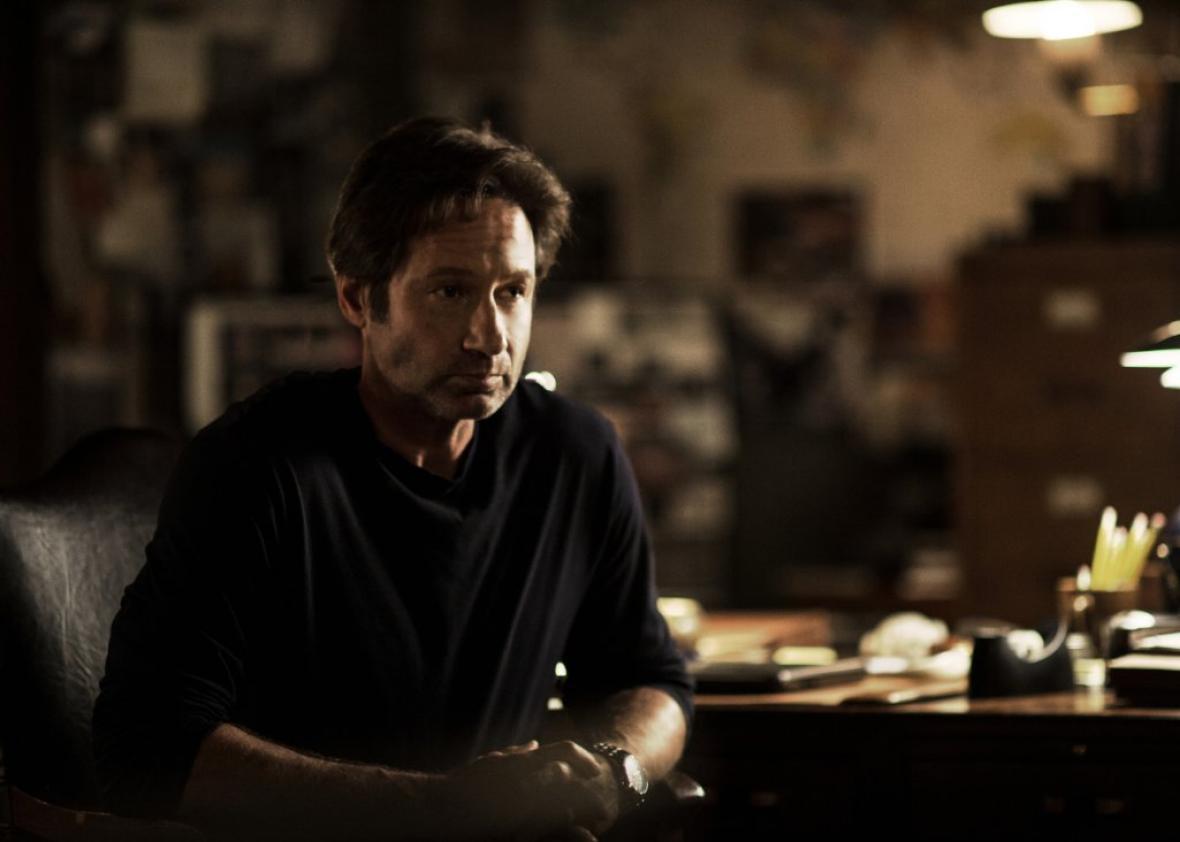“I Want to Believe” is the phrase on a poster in Agent Fox Mulder’s cramped basement office in the X Files—but of course, it’s also his mantra. For all its supernatural quirks and conspiracy-driven twists, the original X-Files always found its center around this simple message. It refers to Mulder’s yearning to believe in something bigger than himself—something that could explain all the inexplicable events in his life, particularly the abduction of his sister. But in the first three episodes of the new X-Files mini-series, the very foundation of Mulder’s character has been compromised. Mulder appears to be having a midlife crisis. From one moment to the next, it’s unclear what he believes—or even wants to believe. Mulder has certainly had his convictions shaken over the course of the show, but his tireless insistence that the truth is out there has always been this series’ core. Destabilizing that leaves the entire season on uncertain ground as it tries to find its bearings among monsters, conspiracies, and protagonists who can’t decide one moment to the next what they believe in or what they want.
The words “I want to believe” make their first appearance on Mulder’s UFO poster in the series’ pilot. It’s our first example of the show’s poetically understated way of establishing character. As the first season presses on, we discover just how much weight these words carry for Mulder: We hear a recording from a hypnotherapy session in which he describes his sister get abducted, while he’s paralyzed by a supernatural force and unable to help her. He tells the hypnotist that he heard a voice telling him that no harm would come to her, and that he’d see her again. When asked if he believes it, he replies, shakily, “I want to believe.”
Wanting to believe is Mulder’s core vulnerability. And for Mulder, wanting to believe is different from blindly believing. He is still an FBI investigator, of course, always trying to examine the facts—even if he occasionally searches for facts to support his theories instead of theories to support the facts. A key part of his dynamic with Dana Scully is her scolding him when she believes his desire for truth is clouding his judgment. What makes them such good partners is the way they balance each other out. But in the new series, Mulder and Scully don’t seem to complement each other the way they used to—largely because Mulder’s beliefs, emotions, and needs are constantly in flux.
In the reboot’s first episode, Joel McHale’s Tad O’Malley tells Mulder that they are both “true believers.” Mulder clarifies that he wants to believe, and that there’s a difference. But his skepticism immediately gives way as O’Malley shows him a girl named Sveta (Annet Mahendru) who claims to have been impregnated with alien babies only to have them removed before birth through her belly button. Suddenly Mulder decides that she’s “the key to everything,” rebuffing any skepticism Scully tries to present. In an instant, he’s become a blind believer. But by the third episode, Mulder’s gone full-fledged midlife crisis: We’d already seen him destroy his old “I Want to Believe” poster with his foot in the first episode, and in the third we find him throwing pencils into Scully’s own copy like darts. When she asks what he’s doing, he tells her, in so many words, that he’s not even sure if he wants to believe anymore: “I’m a middle-aged man, Scully,” he grumbles, adding later, “I’m thinking maybe it’s time to put away childish things—the sasquatches, and moth men, and jackelopes … Is this really how I want to spend the rest of my days? Chasing after monsters?”
By the end of the episode, another 180: Mulder’s faith is reaffirmed. In the original series, his urgent desire to find the truth propelled the show forward and kept us grounded throughout the journey. Now, his identity crisis makes the whole show feel more aimless. We’ve seen Mulder’s faith tested before, and he’s certainly had a fair share of “We had it wrong all along” moments, but this is different—his struggle to believe has become a clunky obstacle in a frantic, hyper-condensed mini-season that’s already trying to do way too much.
